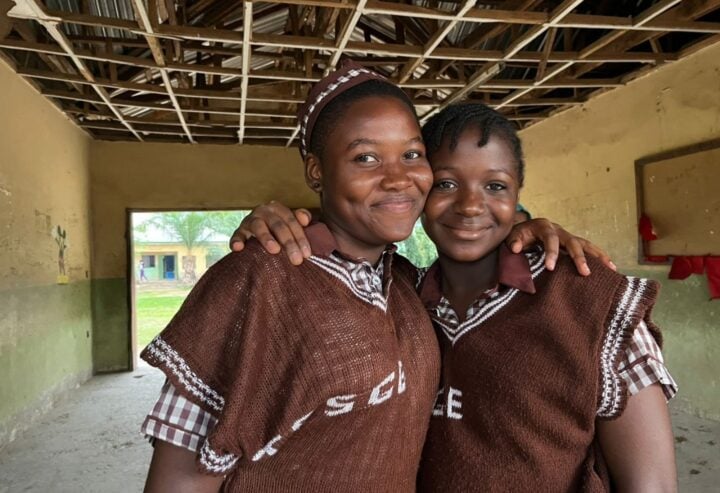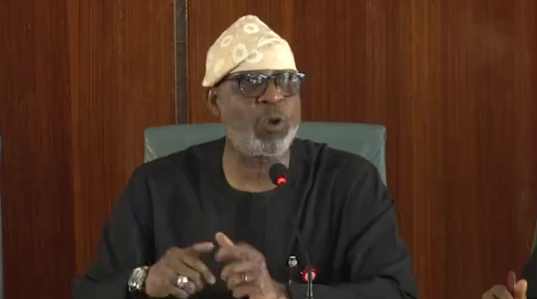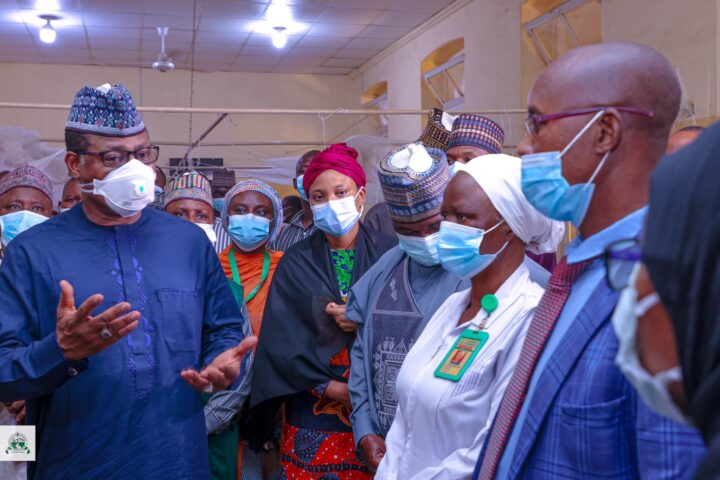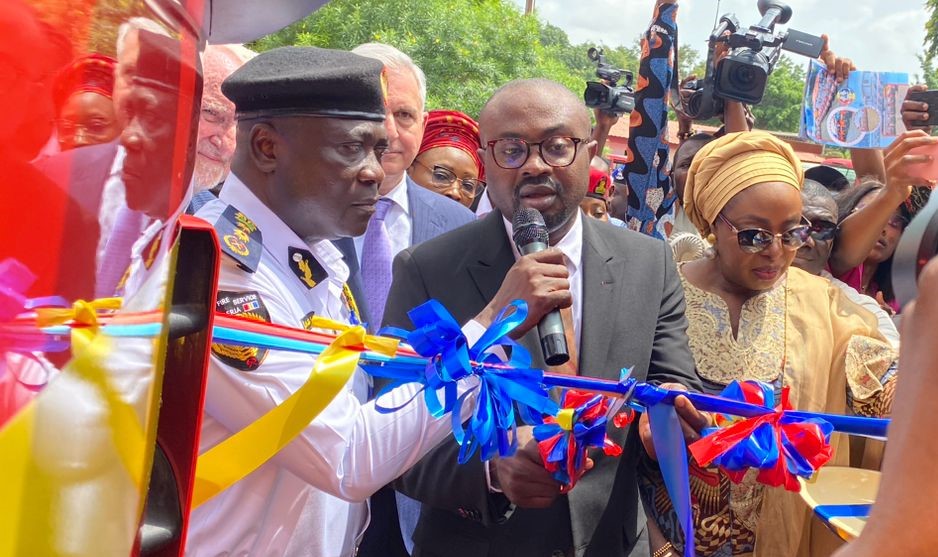These girls are students of the FCT UBEC junior secondary school, Gwarimpa. They say they like being girls but the difficulty of accessing a sanitary pad when they are on their periods makes it tiring. Photo credit: Claire Mom/TheCable
The United Nations Children’s Fund (UNICEF ) has called for more investment in promoting the rights of adolescent girls in Nigeria.
In a statement to mark the International Day of the Girl Child, Cristian Munduate, the UNICEF representative in Nigeria, said there are about 26 million adolescent girls in the country.
The International Day of Girl Child is celebrated annually on October 11.
Munduate said despite the numerous challenges facing the girl child, particularly the marginalised group, there is still hope for Nigeria to achieve the 2030 sustainable development goals (SDGs).
Advertisement
“The potential of our girls is limitless, but we must first provide them with the platforms to express, learn, and thrive. Our commitment to this cause is unwavering and paramount for the nation’s progress,” she said.
“In a rapidly evolving world, the dreams and aspirations of our adolescent girls are the beacons that can guide our efforts towards a more inclusive, equitable future.
“In Nigeria, the stakes are high for an estimated 26 million adolescent girls (ages 10-19). To ensure Nigeria remains on course for the 2030 SDGs, the spotlight must shine brightest on its girls, especially those marginalized due to disability, poverty, or crises, and those who are pregnant, parenting, or married.
Advertisement
“Our collective responsibility extends to championing girls’ education, preventing harmful cultural practices, advancing menstrual hygiene, offering tailored health services, and meeting the nutritional requirements of these young ladies.
“While the terrain might be fraught with challenges, there’s hope. Nigeria’s adolescent girls are not passive bystanders but active agents of change, driving transformative initiatives in their communities.
“The time has come for their voices to echo louder in the halls of decision-making. Girls from UNICEF’s programme in Katsina and Sokoto, for instance, have put forth actionable demands—ranging from life skills training and accessible digital devices to the critical involvement of fathers in girls’ education.”
She added that Nigeria needs to adopt more transformative initiatives that would spotlight the limitless potential of the girl child.
Advertisement
Add a comment






